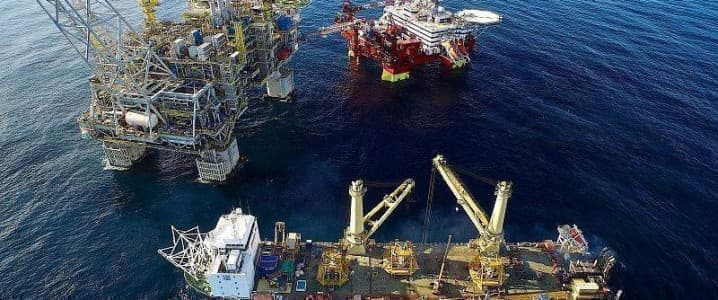Egypt has begun rolling out a full-scale emergency energy plan, scrambling to balance limited fuel supplies against surging national demand after Israel shuttered its largest offshore gas field amid the escalating Iran-Israel conflict that has deprived Cairo of critical Israel gas supplies.
The plan, announced by the Egyptian Ministry of Petroleum and Mineral Resources just days prior and already in full force as of Tuesday, includes the immediate suspension of gas deliveries to multiple industrial sectors. To stabilize the national power grid, Egypt is now turning heavily to low-quality heavy fuels like mazut and diesel to keep electricity flowing during peak summer loads, according to Reuters.
The crisis was triggered when Israel halted operations at its Leviathan and Karish fields after Iranian missile attacks. Before the shutdown, Egypt was importing nearly 1 bcf/d of Israeli gas, volumes that had become critical for both power generation and industrial feedstock. Early on Tuesday, Israel announced that its largest oil refinery, Bazan, had been shut down due to Iranian missile strike damage, including all of the refinery facilities at the Haifar Port.
“The power station responsible for part of the steam and electricity production used by the group’s facilities sustained significant damage, alongside additional impacts,” the company said in a filing to the Tel Aviv Stock Exchange, as reported by Israeli media. “At this stage, all refinery and subsidiary facilities have been shut down,” it added.
Industrial fallout came swiftly. Fertilizer producers have now suspended operations due to feedstock shortages, while the government has rushed to secure emergency imports of up to 1 million tonnes of fuel oil starting in August.
LNG tenders are also being issued. Last week, Egypt finalized a sweeping series of liquefied natural gas (LNG) supply agreements with Saudi Aramco, Shell Plc, Trafigura, and several other major traders, as the country struggles to shift back to a status of long-term net exporter, rather than importer amid a deepening domestic supply crunch. State-owned Egyptian Natural Gas Holding Co. (EGAS) secured as many as 290 LNG cargoes over the next two and a half years, starting as early as next month.
Financially, this is a squeeze Egypt can ill afford. With foreign reserves already strained, soaring spot LNG prices and fuel oil premiums are threatening to blow a hole in the country’s energy budget.
By Charles Kennedy for Oilprice.com
More Top Reads From Oilprice.com

